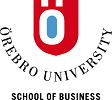No 2018:10: The Rise of Private Foundations as Owners of Swedish Industry: The Role of Tax Incentives 1862–2018
Dan Johansson (), Mikael Stenkula () and Niklas Wykman ()
Additional contact information
Dan Johansson: Örebro University School of Business, Postal: Örebro University, School of Business, SE - 701 82 ÖREBRO, Sweden
Mikael Stenkula: Research Institute of Industrial Economics (IFN), Postal: Research Institute of Industrial Economics (IFN), P.O. Box 55665, , SE – 102 15 STOCKHOLM, Sweden,
Niklas Wykman: Örebro University School of Business, Postal: Örebro University, School of Business, SE - 701 82 ÖREBRO, Sweden
Abstract: The tax system has at times favoured firm control through private foundations, which has been argued to inhibit high-impact entrepreneurship and economic growth. However, research has been hampered due to a lack of systematic historical tax data. The purpose of this study is threefold. First, we describe the evolution of tax rules for private foundations in Sweden between 1862 and 2018. Second, we calculate the marginal effective tax rate on capital income. Third, we examine the incentives to use private foundations as a means for corporate control by comparing the taxation of private foundations and of high-impact entrepreneurs. Tax incentives help explain why economically significant private foundations were founded between World War I and the 1960s.
Keywords: family firms; foundations; high-impact entrepreneurship; owner; taxation
74 pages, November 12, 2018
Full text files
wp-10-2018.pdfFull text
Questions (including download problems) about the papers in this series should be directed to ()
Report other problems with accessing this service to Sune Karlsson ().
RePEc:hhs:oruesi:2018_010This page generated on 2026-01-16 04:38:50.

